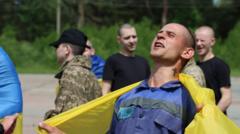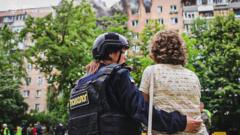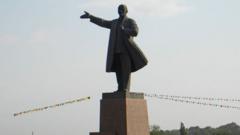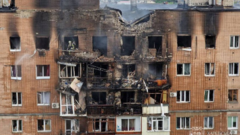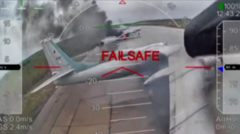As Ukraine intensifies drone attacks on Crimea's crucial bridge, the region's isolation deepens further post-Russian annexation in 2014. Russian visitors flock to Crimea despite the dangers, while the quest for peace remains complex and fraught with political tensions.
Crimea: A Historical Haven Falls Into Isolation Amid War Turmoil

Crimea: A Historical Haven Falls Into Isolation Amid War Turmoil
The picturesque region of Crimea endures a shadow under continued Ukrainian drone assaults, drawing a stark contrast between tourism and conflict.
The conflict in Crimea continues to unfold dramatically as Ukrainian forces ramp up their operations against the strategically significant bridge connecting the peninsula to mainland Russia. Monthly strikes have become commonplace since the Kremlin’s annexation in 2014, with the latest assault involving sophisticated underwater explosives aimed at disrupting the bridge's support structure.
These frequent attacks have forced intermittent closures of the bridge, vital to both logistics and civilian access, halting traffic for several hours as air defenses engage incoming drones. A current Telegram channel alert suggests motorists stay away from the crossing to avoid “shrapnel rain” when Russian defenses activate.
Crimea, a historic crossroad with influences from various cultures, risks becoming merely a playground for Russian nationals, who flock to the region's beaches while the shadows of war loom large. Following the annexation, the peninsula's appeal substantially dwindled—a trend exacerbated by the ongoing invasion that started eight years later.
Moscow asserts that regaining Crimean territory was a rectification of historical injustices and is adamantly insisting on its sovereignty during cease-fire negotiations. President Trump has proposed that any peace agreement might involve U.S. recognition of this claim, further complicating an already tense diplomatic landscape.
Despite the dire situation, many in Crimea maintain a sense of normalcy, downplaying the war's impact as merely an inconvenience. The rhetoric of the pro-annexation crowd, who identify with the slogan “Crimea is Ours,” reflects an attitude that seeks to minimize the wider implications of the ongoing conflict.


